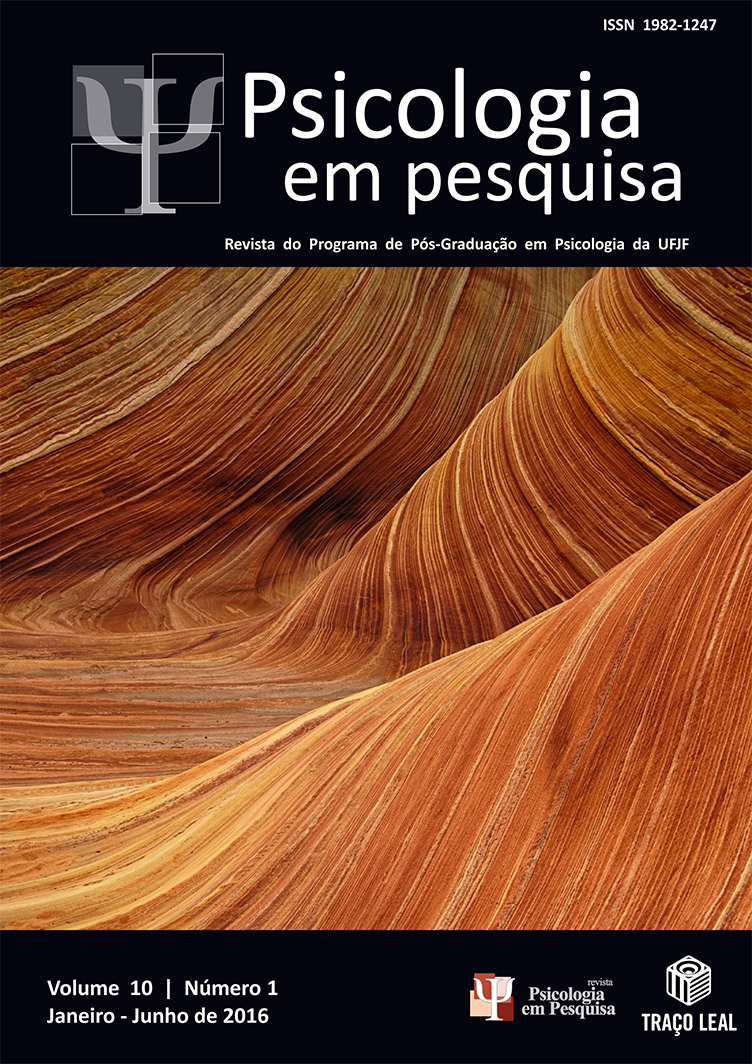Avaliação da Efetividade da Intervenção Breve para a Prevenção do Uso de Álcool no Trabalho
DOI:
https://doi.org/10.24879/201600100010045Resumen
O uso de álcool está relacionado a acidentes de trabalho, absenteísmo e piora da saúde do indivíduo. Objetivos: Realizar um estudo piloto para avaliar a efetividade da Intervenção Breve (IB) no contexto laboral para o uso de álcool. Método: Realizou-se um ensaio clínico randomizado não controlado, quantitativo. Um total de 104 participantes fizeram parte do estudo. A metodologia utilizada foi a Screening, Brief Intervention, and Referral to Treatment (SBIRT). Resultados: O grupo 02 (IB) reduziu significativamente o consumo de álcool e o grupo 01 (Feedback/ panfletos) não apontou diferenças significativas. Porém os dois grupos sinalizaram tendências para a redução do consumo. Conclusão: A aplicação da IB no ambiente de trabalho foi viável. Novas pesquisas são necessárias a fim de comprovar a eficácia e efetividade desta intervenção neste contexto.
Descargas
Citas
Breves: para o uso de risco e nocivo de álcool - manual
para uso em atenção primária. Ribeirão Preto,
SP: PAI-PAD.
Boutron, I., Moher, D., Altman, D. G., Schulz, K. F.,
& Ravaud, P. (2008). Extending the CONSORT to
Randomized Trials of Nonpharmacologic Treatment:
Explanation and Elaboration. Annals of Internal
Medicine, 148(4), 295-309.
Branco, A. B., Mascarenhas, F. A. N., & Pena, L. G.
Q. (2009). Alcoolismo como fator de incapacidade
para o trabalho: prevalência de benefício auxílio
doença no Brasil, 2007. Comunicação em Ciências
da Saúde, 20(2), 123-133.
Brasil (2004). A Política do Ministério da Saúde para
Atenção Integral aos Usuários de Álcool e outras Drogas
(2a ed.). Brasília, DF: Ministério da Saúde.
Brasil (2012). Prevenção do Uso de Álcool e outras Drogas
no Ambiente de Trabalho: conhecer para ajudar.
Brasília, DF: Senad.
Bucher, R. (2007). A ética da prevenção. Psicologia:
Teoria e Pesquisa, 23(spe), 117-123.
European Commission (2011). Alcohol, Work and
Productivity. Scientific Opinion of the Science Group of
the European Alcohol and Health Forum. Recuperado
em 10 de julho de 2015 de http://ec.europa.eu/
health/alcohol/docs/science_02_en.pdf
Ferreira, M. L., & Sartes, L. M. A. (2015). Intervenções
realizadas no ambiente de trabalho para o uso de
drogas: revisão sistemática. Psicologia: Ciência e
Profissão, 35(1), 96-110.
Figlie, N. B., Dunn, J., Bazan, J. L., & Laranjeira, R.
(2005). The stages of change scale among Brazilian
alcohol dependents. Addictive Disorders Their
Treatment, 4, 161-165.
Friedmann, P. D., McCullough, D., Chin, M. H.,
& Saitz, R. (2000). Screening and intervention
for alcohol problems. Journal of General Internal
Medicine,15(2), 84-91.
Hermansson, U., Helander, A., Brandt, L., Huss,
A. & Rönnberg, S. (2010). Screening and brief
intervention for risky alcohol consumption in the
workplace: results of a 1-year randomized controlled
study. Alcohol and Alcoholism, 45(3), 252-257.
Kessler, F., Cacciola, J., Alterman, A., Faller, S., Souza-
Formigoni, M. L., Cruz, M. S., et al. (2012).
Psychometric properties of the sixth version of the
Addiction Severity Index (ASI-6) in Brazil. Revista
Brasileira de Psiquiatria, 34(1), 24-33.
Magallón, T. J. C., & Robazzi, M. L. C. (2005).
Consumo de alcohol en trabajadores de uma
industria en monterrey, México. Revista Latino-
Americana de Enfermagem, 13(spe), 819-826.
Mathurin, P., & Deltenre, P. (2009). Effect of binge
drinking on the liver: an alarming public health
issue? Gut, 58(5), 613-617.
Mcpherson, T. L., Goplerud, E., Derr, D., Mickenberg,
J. & Coutthemarche, S. (2010). Telephonic screening
and brief intervention for alcohol misuseamong
workers contacting the employee assistance program:
A feasibility study. Drug and Alcohol Review, 29(6),
641-646.
Miller, W. R., & Rollnick, S. (2001). Entrevista
Motivacional: preparando pessoas para a mudança de
comportamentos adictivos. Porto Alegre, RS: Artmed.
Nilsen, P., Kaner, E., & Babor, T., F. (2008). Brief
intervention, three decades on: an overview of
research findings and strategies for more widespread
implementation. Nordic Studies on Alcohol and
Drugs, 25(6), 453-467.
Oliveira, M., Laranjeira, R., Araújo, R. B., Camilo, R.
L., & Schneider, D. D. (2003). Estudo dos estágios
motivacionais em sujeitos adultos dependentes do
álcool. Psicologia: Reflexão e crítica, 16(2), 265-270.
Pengpid, S., Peltzer, K., Skaal, L., & Heever, H. V. (2013).
Screening and brief interventions for hazardous and
harmful alcohol use among hospital outpatients in
South Africa: results from a randomized controlled
trial. BMC Public Health, 13, 644.
Prochaska, J. O., & DiClemente, C. (1992). Stages of
change in the modification of problem behaviors. In
M. Hersen, M. Eiser, & W. Miller (Orgs.), Progress
in Behavior Modification (pp.184-214). Sycamore:
Sycamore Press.
Segatto, M. L., Pinsky, I., Laranjeira, R., Rezende, F. F.,
& Vilela, T. R. (2007). Triagem e intervenção breve
em pacientes alcoolizados atendidos na emergência:
perspectivas e desafios. Cadernos de Saúde Pública,
23(8), 1753-1762.
Standridge, J. B., Zylstra, R. G., & Adams, S. M. (2004).
Alcohol consumption: an overview of benefits and
risks. Southern Medical Journal, 97(7), 664-672.
Watson, H., Alison, M., Wilson, M., Kerr, S., &
Godwin, J. (2010). Involvement of nurses and
midwives in screening and brief interventions for
hazardous and harmful use of alcohol and other
psychoactive substances. Genebra: WHO.
Webb, G., Shakeshaft, A., Sanson-Fisher, R., &
Havard, A. (2009). A systematic review of workplace
interventions for alcohol-related problems.
Addiction, 104(3), 365-377.















